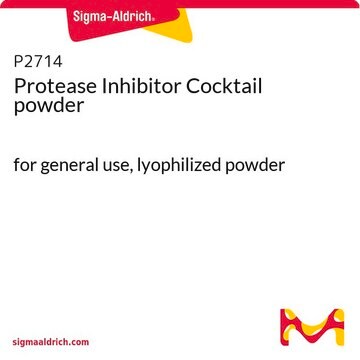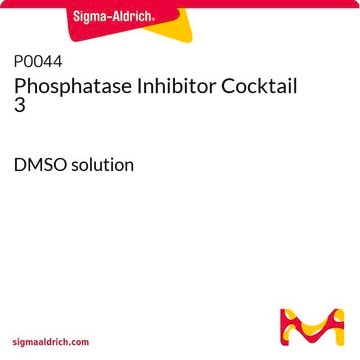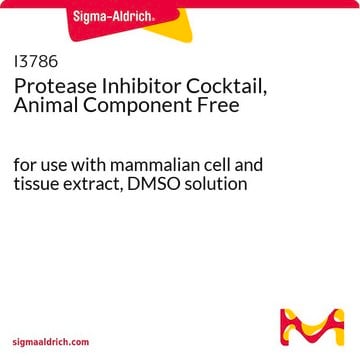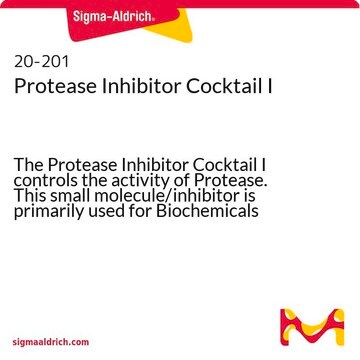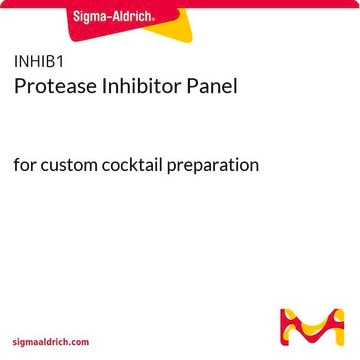535140
Protease Inhibitor Cocktail III
Animal-Free, liquid, for the inhibition of aspartic, cysteine, serine proteases and aminopeptidases
Sinónimos:
Animal free Protease inhibitor
About This Item
Productos recomendados
product name
Protease Inhibitor Cocktail Set III, Animal-Free, Protease Inhibitor Cocktail Set III, Animal-Free, is a cocktail of six protease inhibitors with broad specificity for the inhibition of aspartic, cysteine & serine proteases & aminopeptidases.
form
liquid
manufacturer/tradename
Calbiochem®
storage condition
OK to freeze
avoid repeated freeze/thaw cycles
shipped in
wet ice
storage temp.
−20°C
General description
Biochem/physiol Actions
Aspartic, cysteine, and serine proteases as well as aminopeptidases
Warning
Physical form
Reconstitution
Legal Information
signalword
Warning
hcodes
Hazard Classifications
Eye Irrit. 2 - Skin Irrit. 2
Storage Class
10 - Combustible liquids
wgk_germany
WGK 2
flash_point_f
188.6 °F
flash_point_c
87 °C
Certificados de análisis (COA)
Busque Certificados de análisis (COA) introduciendo el número de lote del producto. Los números de lote se encuentran en la etiqueta del producto después de las palabras «Lot» o «Batch»
¿Ya tiene este producto?
Encuentre la documentación para los productos que ha comprado recientemente en la Biblioteca de documentos.
Los clientes también vieron
Nuestro equipo de científicos tiene experiencia en todas las áreas de investigación: Ciencias de la vida, Ciencia de los materiales, Síntesis química, Cromatografía, Analítica y muchas otras.
Póngase en contacto con el Servicio técnico




